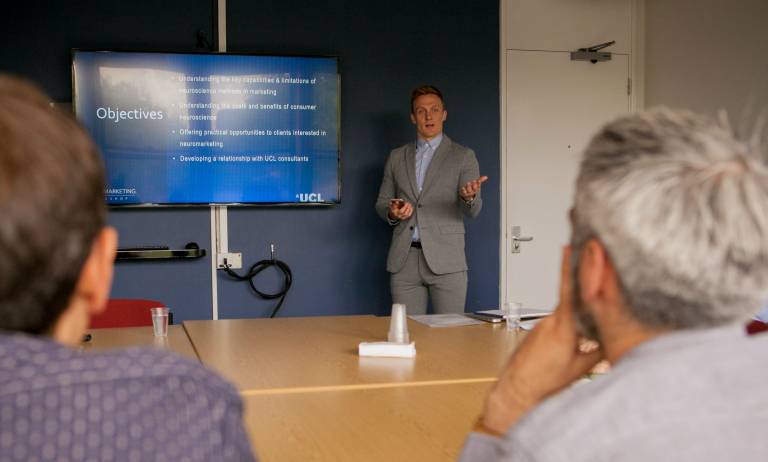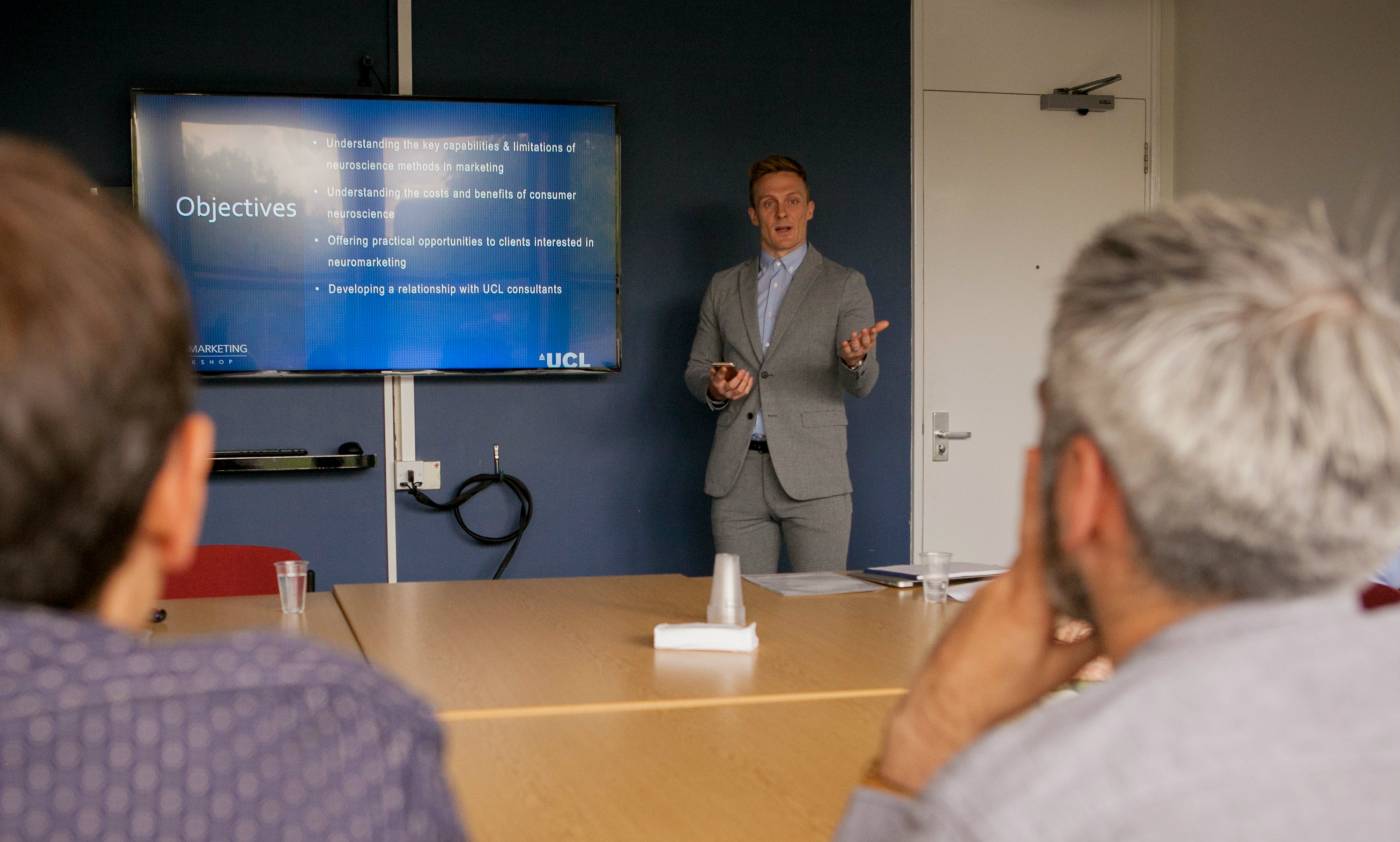5 ways a UCL short course could interest you
19 November 2015
 ucl.ac.uk/lifelearning/courses/consumer-neuroscience-what-science-offers-neuromarketing" title="PhD student John Hogan teaches on the short course he helped design, deliver and promote, based on some of his PhD research" target="_self">
ucl.ac.uk/lifelearning/courses/consumer-neuroscience-what-science-offers-neuromarketing" title="PhD student John Hogan teaches on the short course he helped design, deliver and promote, based on some of his PhD research" target="_self">
You probably know UCL best as the provider of your undergraduate or postgraduate degree programme. But did you know that UCL also has an extensive portfolio of short courses for career advancement and personal or professional development (CPD)?
Here at UCL Life Learning, we support staff in developing and promoting short courses that draw on their particular expertise. We've launched a course finder website to make finding short courses much easier across the entire university and are adding more courses every day. But why should this interest you?
1. Get free (or cheap) skills
Some courses are free and most offer substantial UCL student discounts.
2. Explore your hobbies and interests alongside your degree studies
Do you have an interest in the urban environment or design? Try the Urban Graphics series - it's free and online.
3. Broaden your degree-based skills and potentially increase your employability
Show initiative by learning extra skills related to your degree e.g. if you're studying to be a speech therapist or want to work in a healthcare setting, try the free and online resource for communicating with people suffering from Aphasia.
4. Build your workplace skills, as well as your academic ones
Our one-day Systems Thinking course explores novel approaches to managing complexity in projects, organisations or businesses (4 December) and our Digital Business Academy MOOC can help you set up your own digital business.
There are many courses available on topics from pitching business ideas to improving your English Pronunciation (21 December).
5. Make connections with your future industry
Joining a short course gives you the opportunity to
mix with professionals already working in the field as these courses are
targeted at a broader audience outside the university walls.
Network with your future peers and learn from them as well as the academic experts.
You never stop training and learning
Throughout your career you'll need to develop and update your skills, advance your career or even change it.
You'll have help and support from services such as UCL Careers and the alumni network after you graduate but don't forget about all the short courses on offer here too. As alumni you'll get discounts on many courses and you'll have a great chance to come back to UCL to develop your skills!
Get involved and gain new skills
Short courses could be an opportunity for you to get more
involved in your department. Perhaps you could help write some marketing
articles and promotional materials? You could write reviews of courses you take
part in.
Find out what's going on and see if you can get involved in some way - like PhD student John Hogan in Experimental Psychology (pictured).
If you're really keen, contact me (j.bozec@ucl.ac.uk) and I'll see if I can link you up to the relevant people.
Jenni Bozec, Marketing and communications coordinator, UCL Life Learning
Image
- PhD student John Hogan teaches on the short course he helped design, deliver and promote, based on some of his PhD research: Consumer Neuroscience.
 Close
Close

